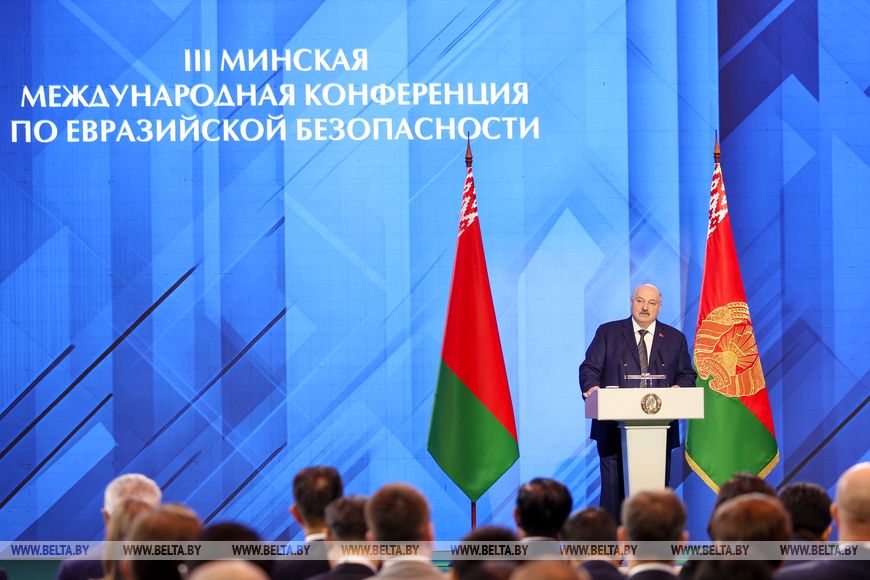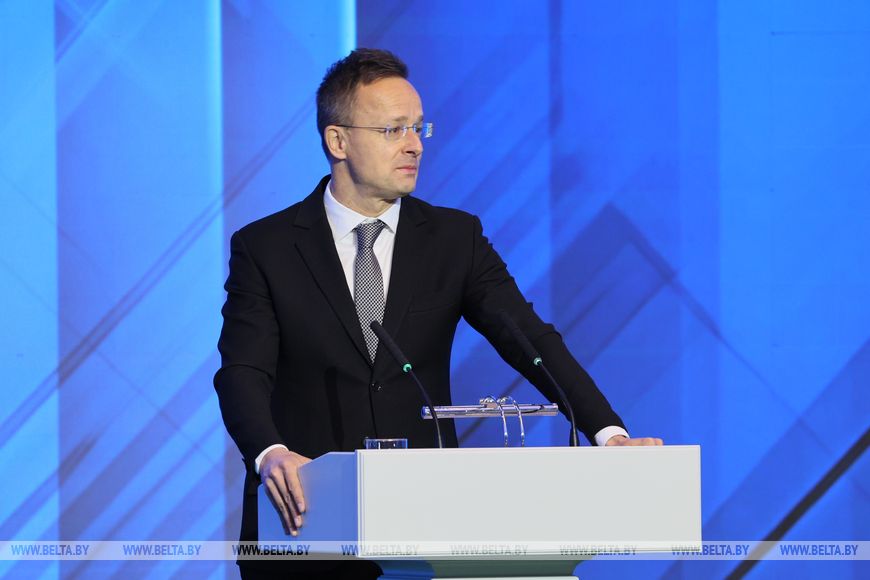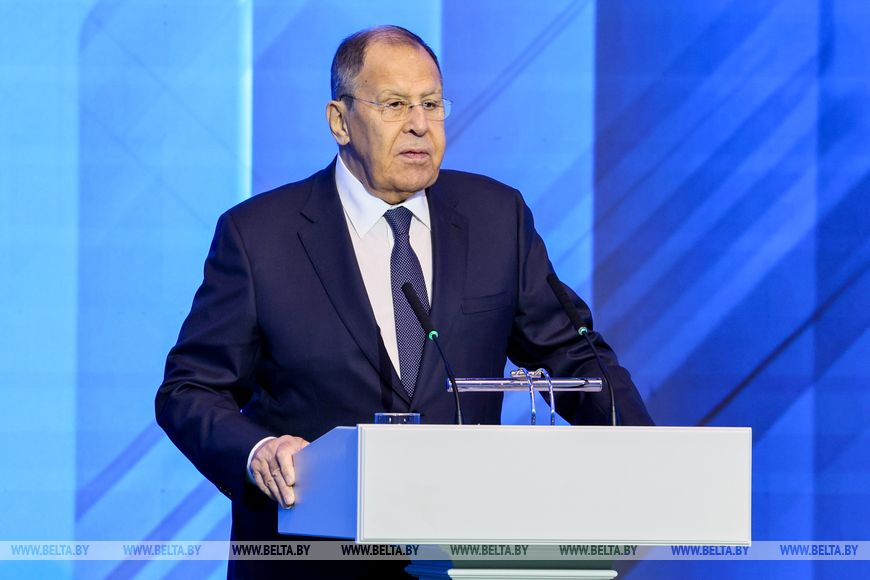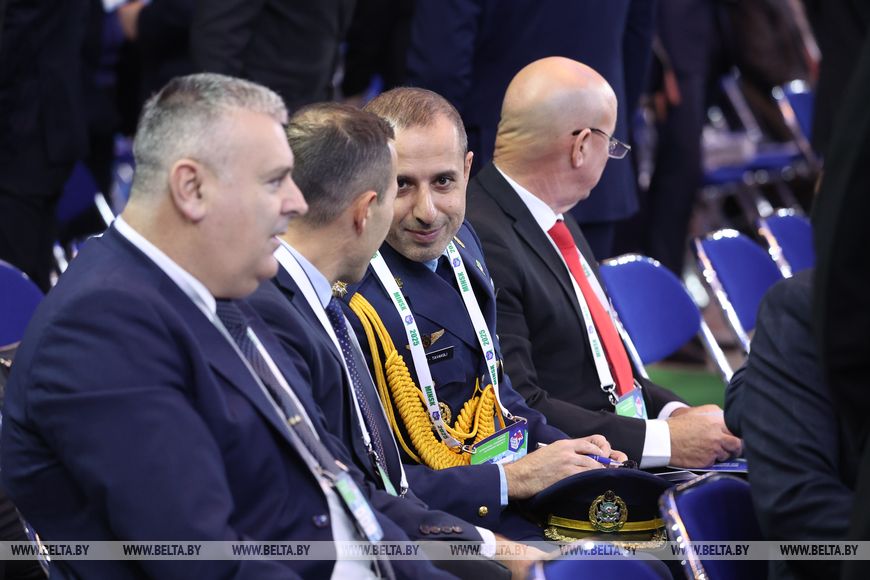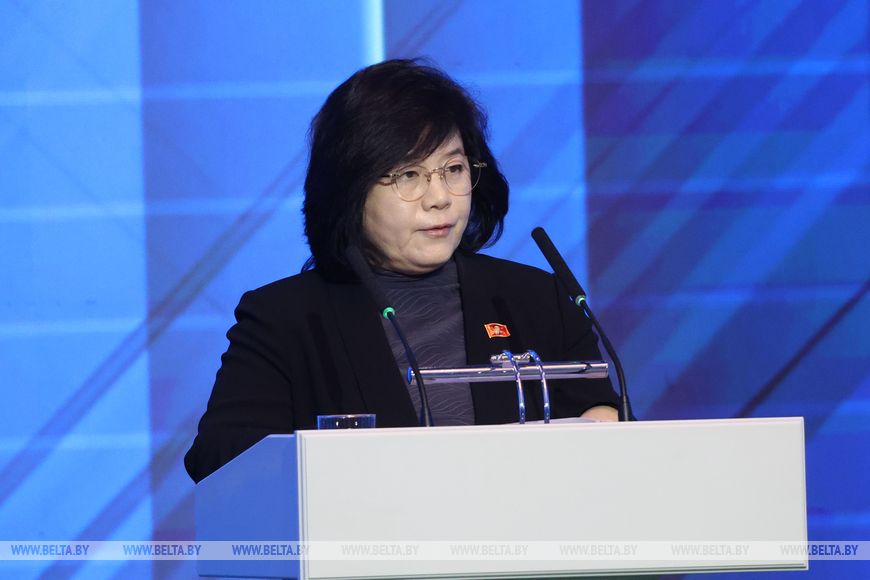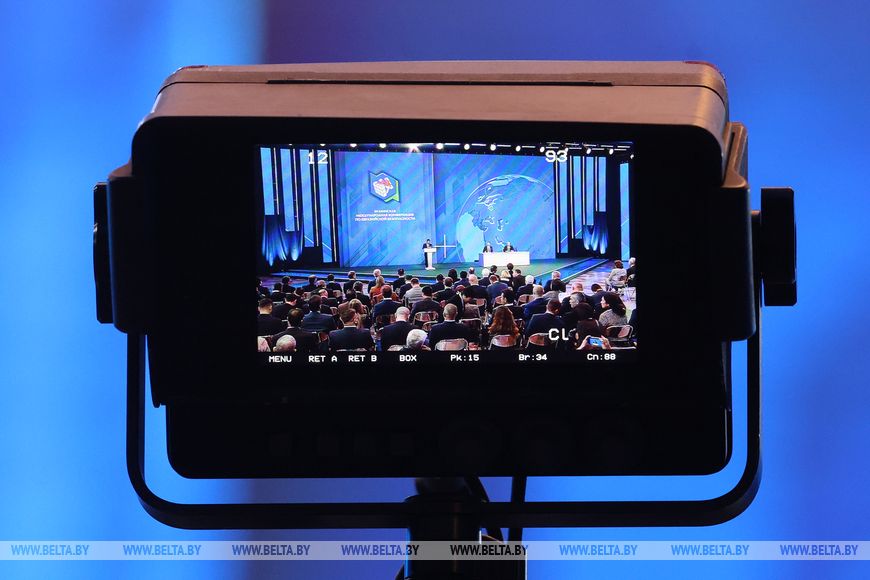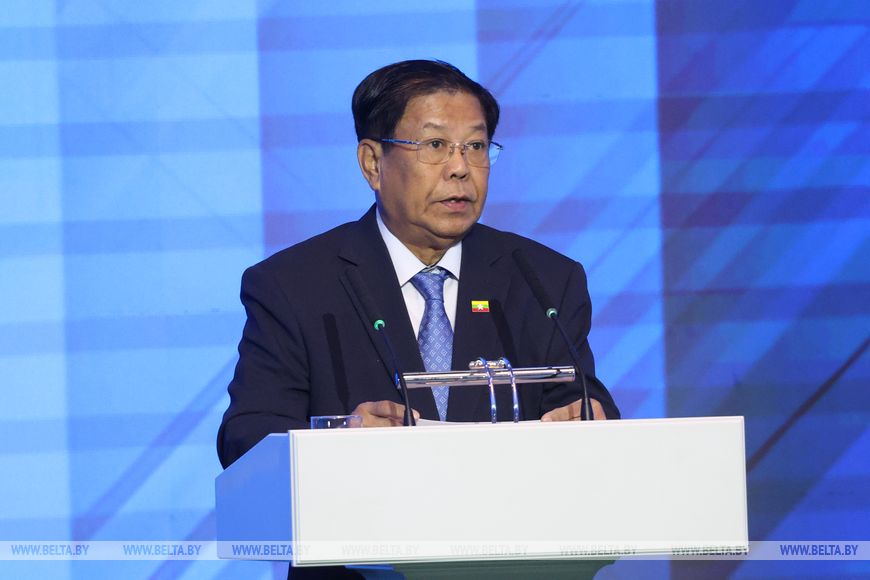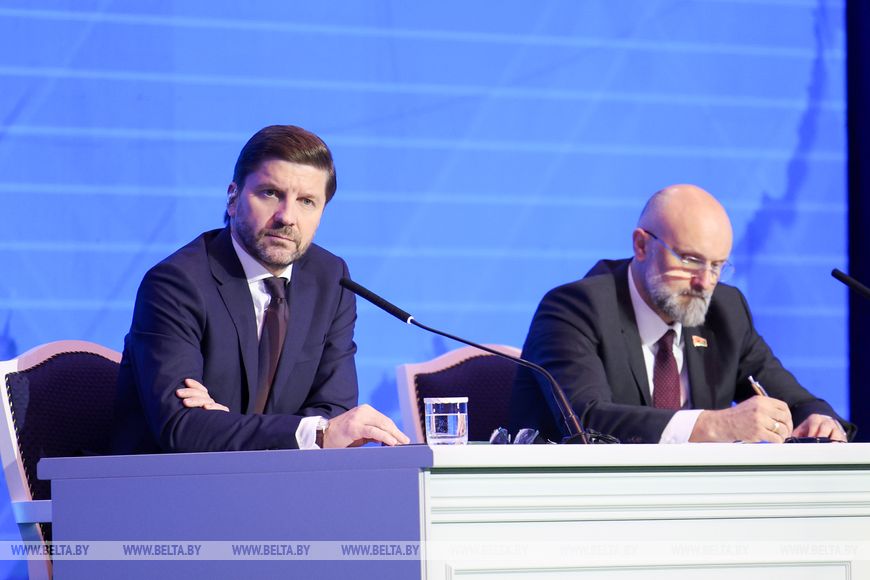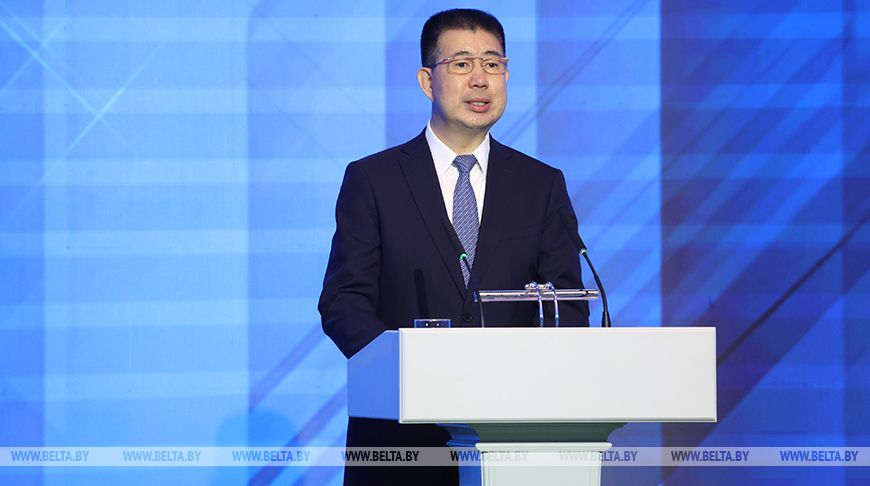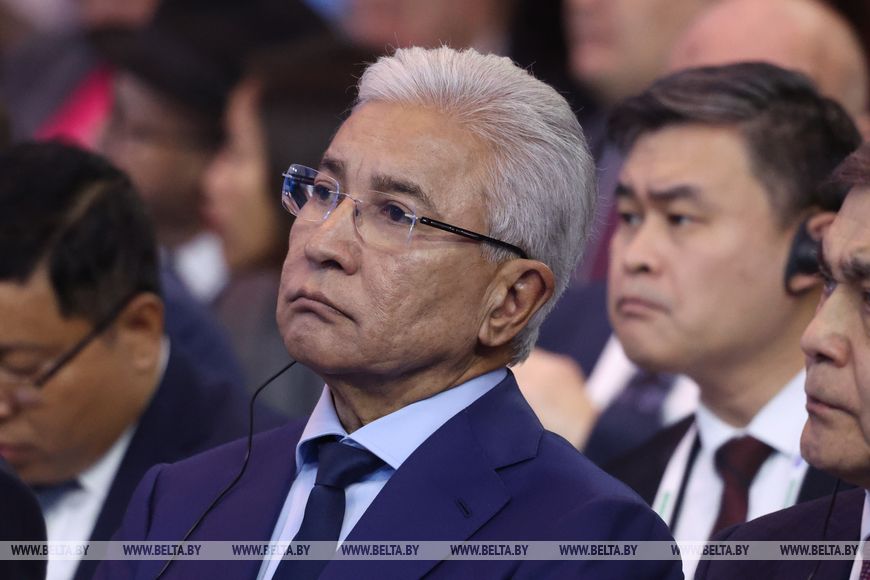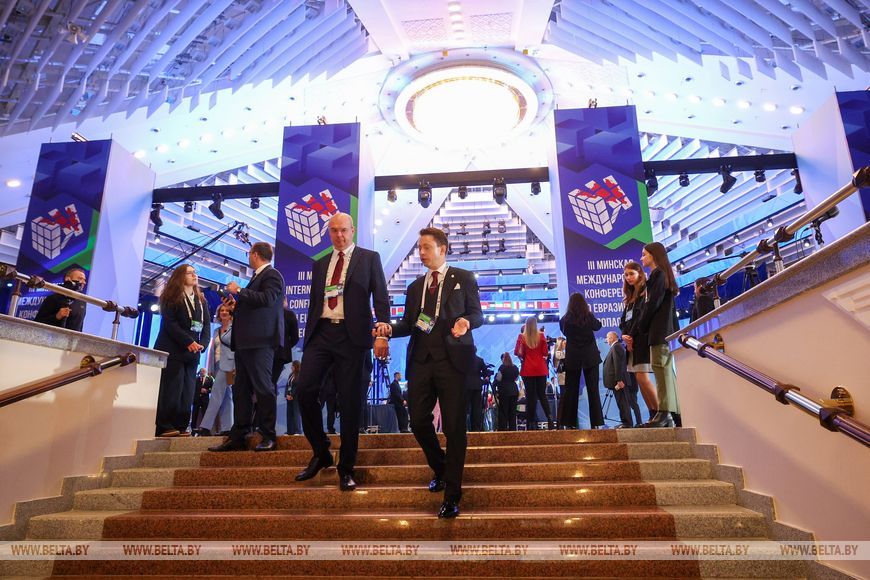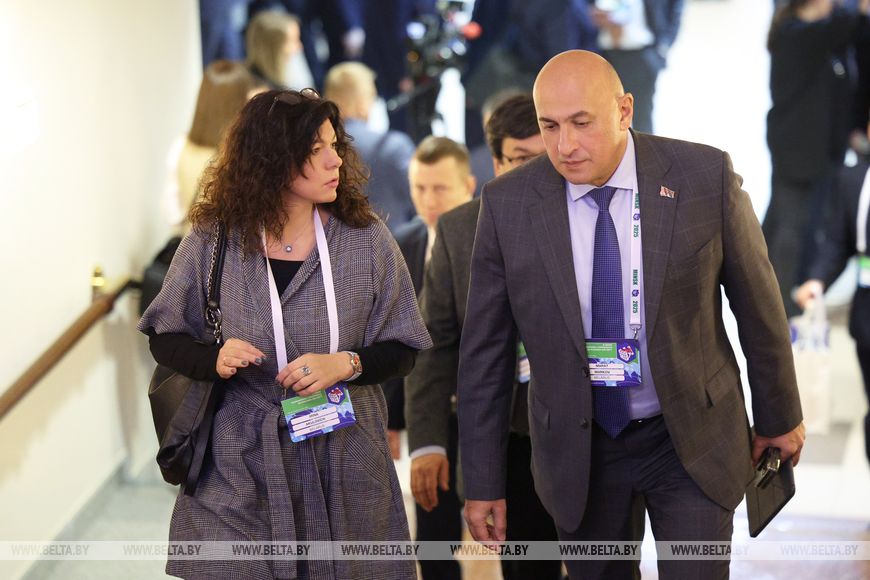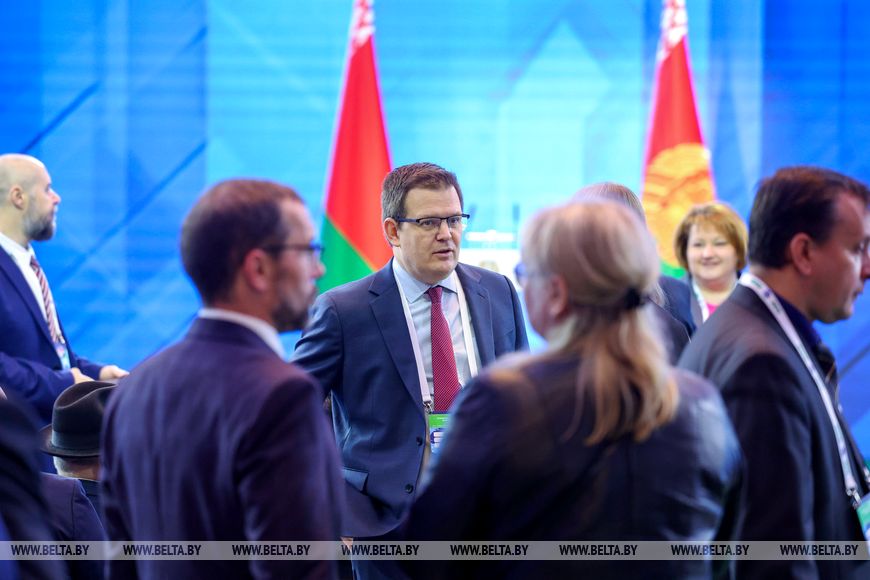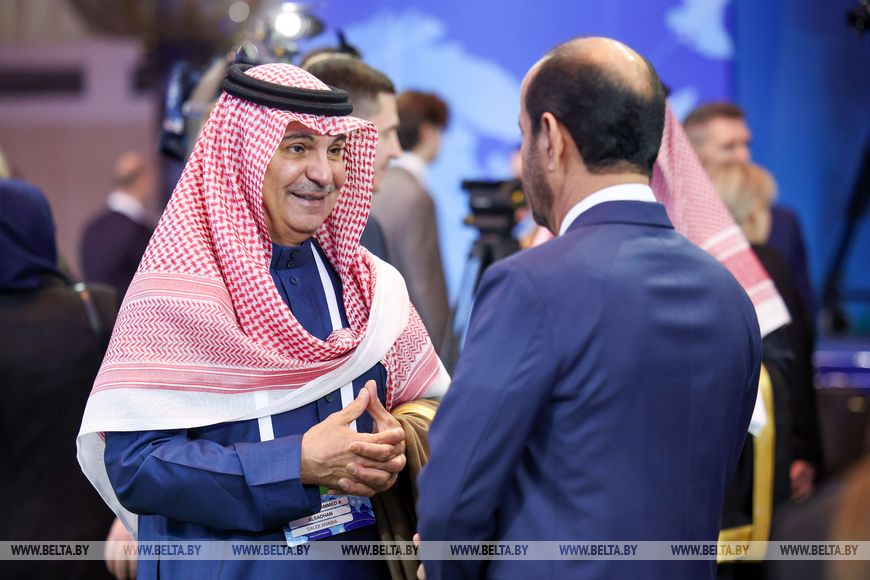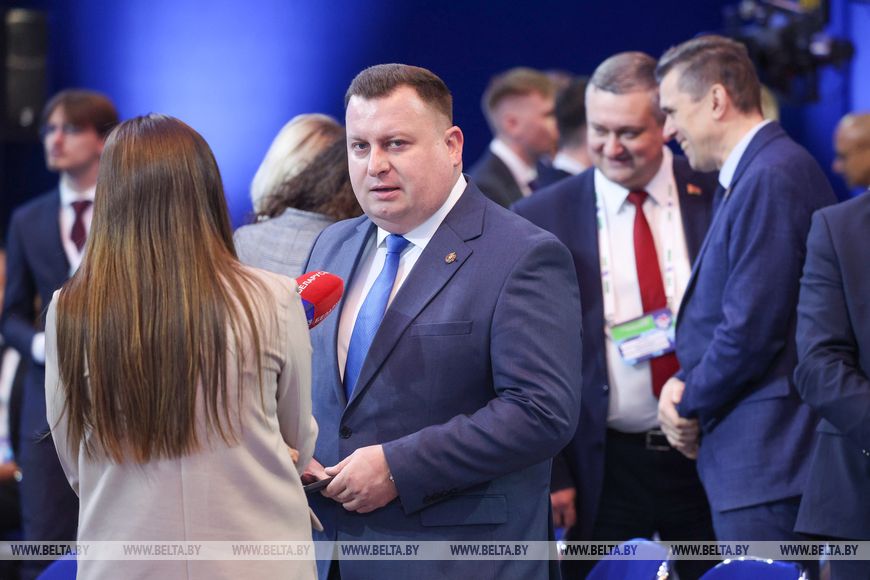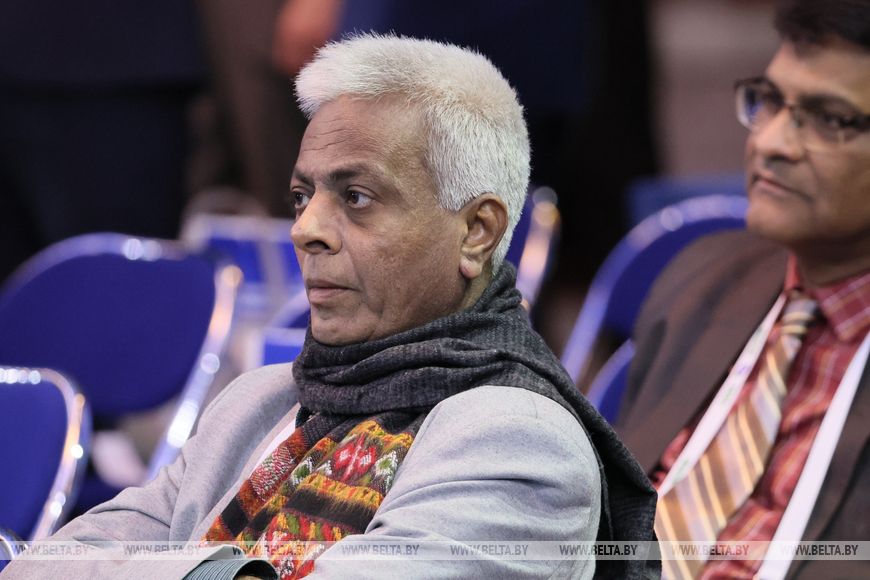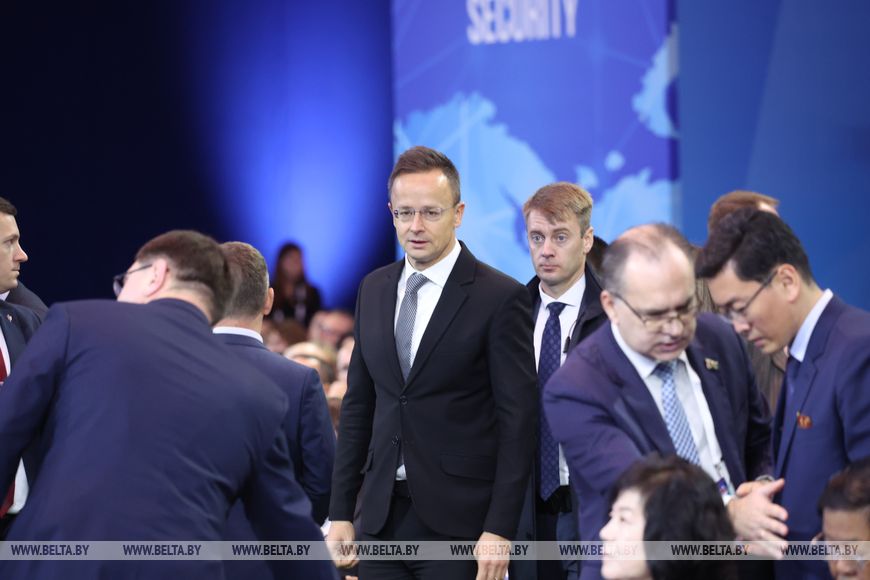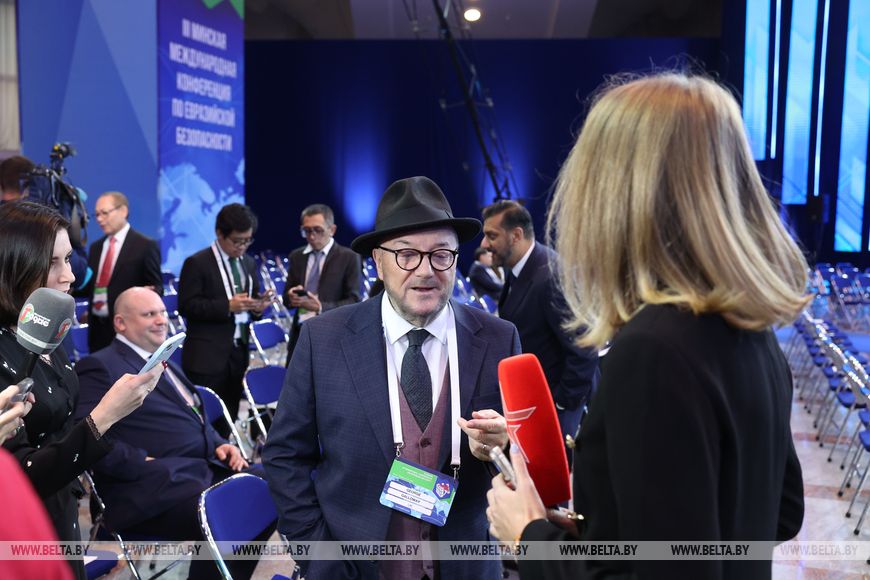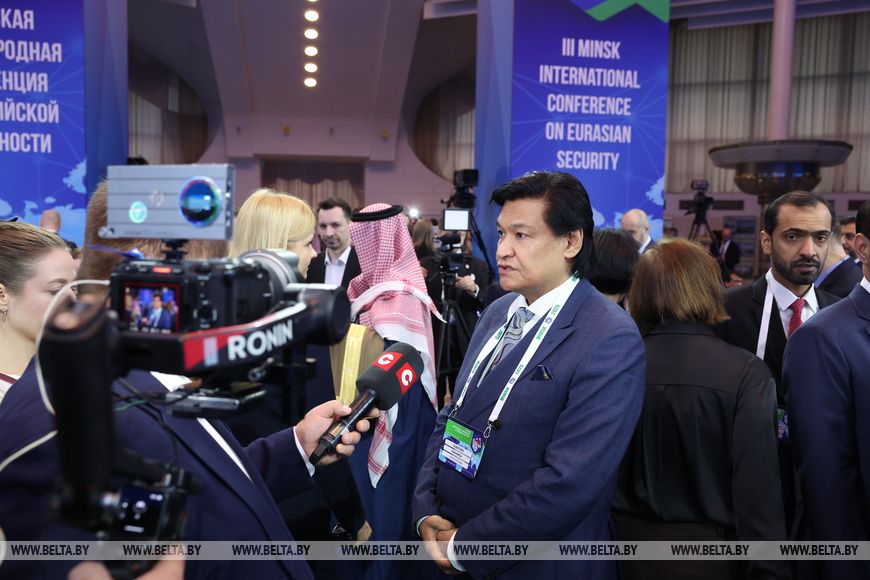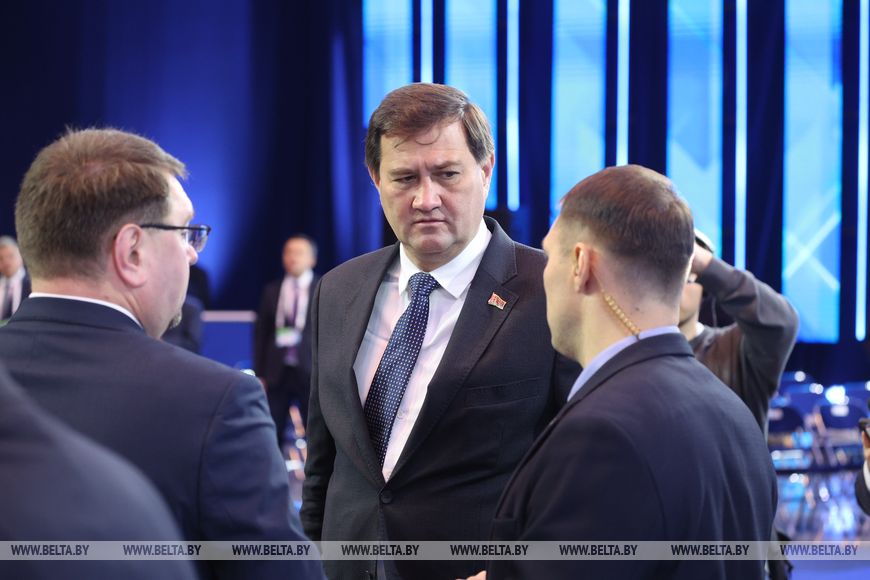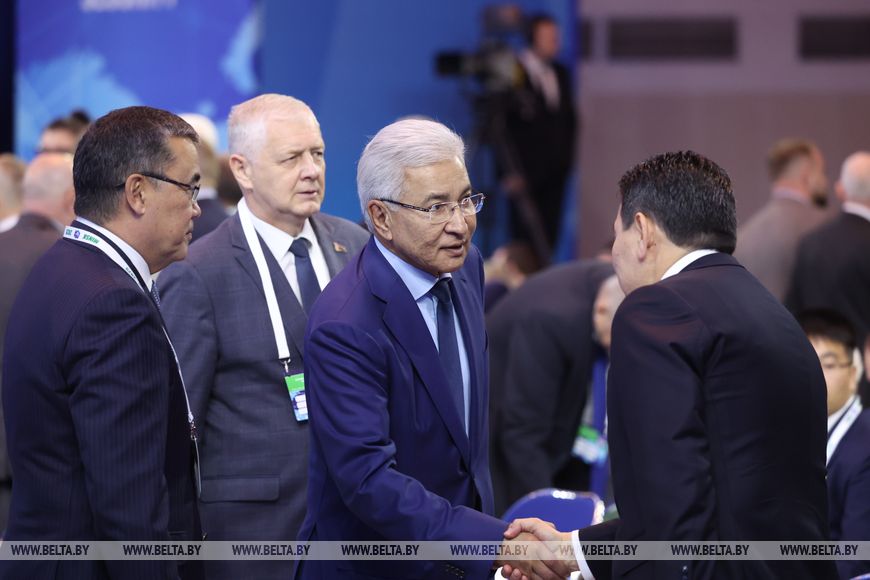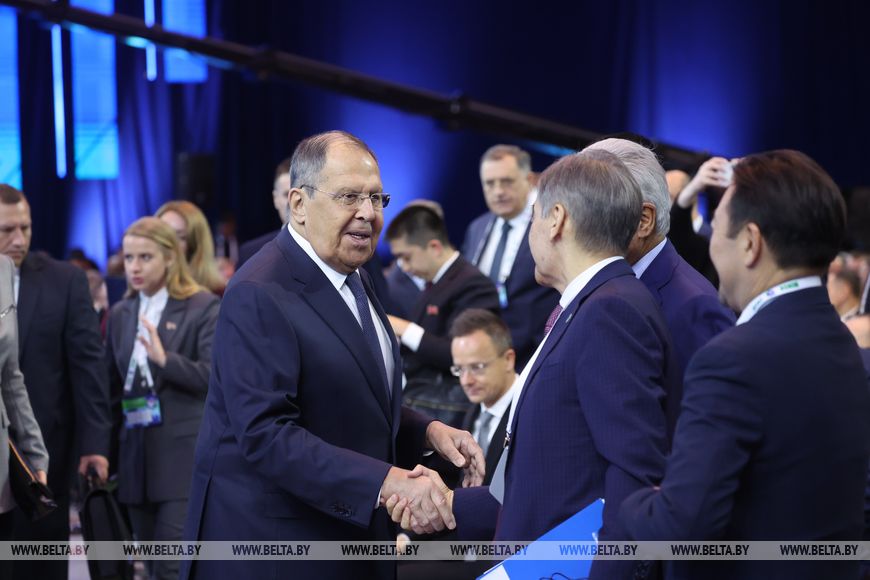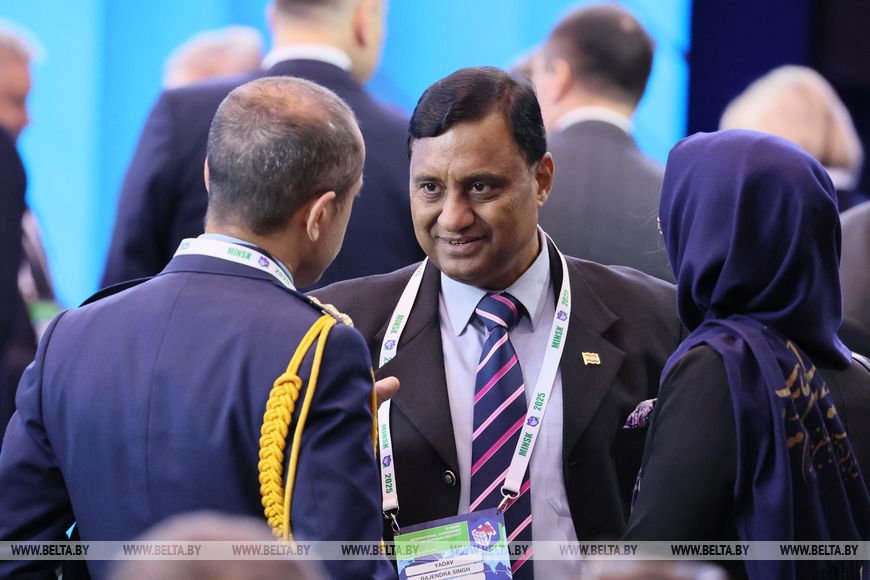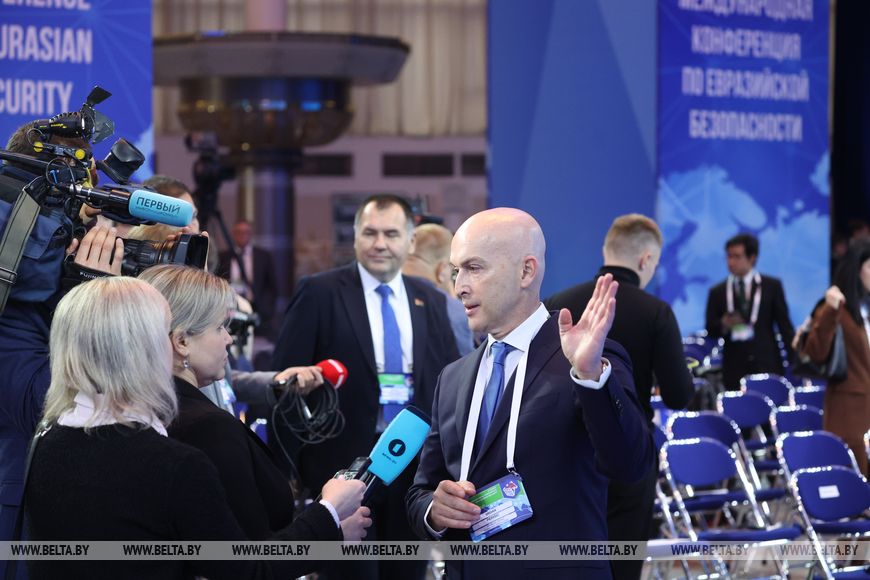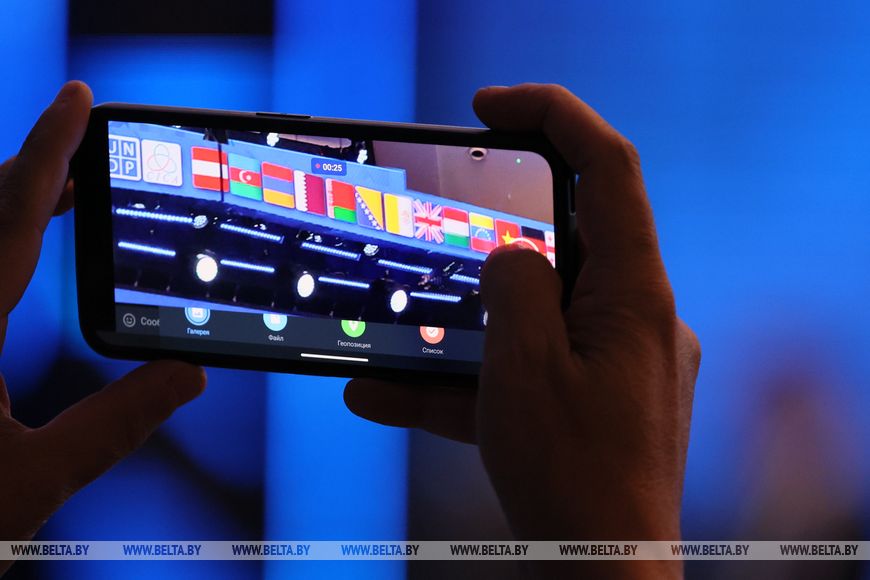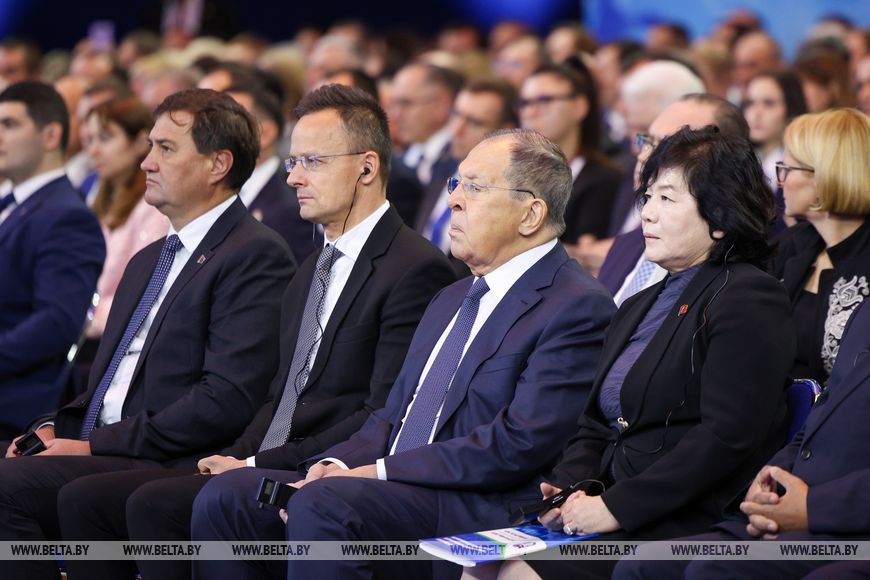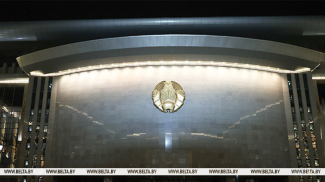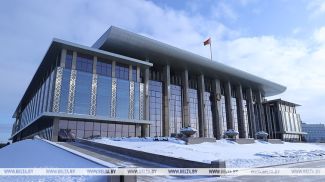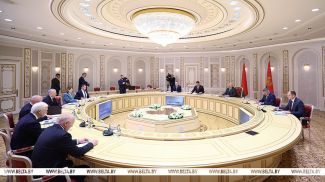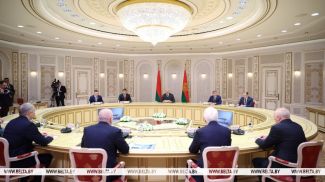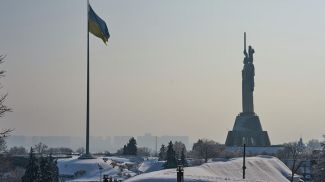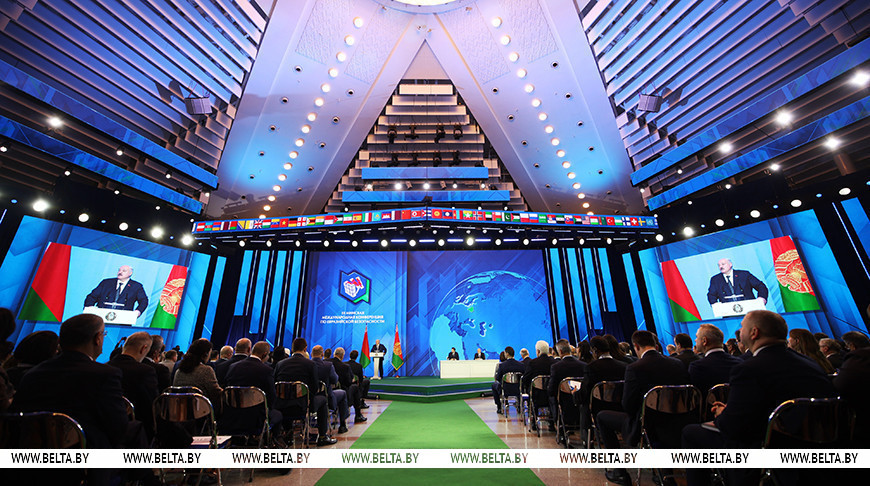
MINSK, 28 October (BelTA) – Belarusian President Aleksandr Lukashenko outlined the country’s key proposals for the peace agenda at the 3rd Minsk International Conference on Eurasian Security, BelTA has learned.
The head of state noted that this year marks the 80th anniversary of the United Nations and the 50th anniversary of the Helsinki Final Act. “The issue of reforming key international institutions has been debated for decades, yet the problems remain unresolved,” Aleksandr Lukashenko said, emphasizing that Belarus’ commitment to peace is not empty rhetoric but an objective necessity. The same holds true for the whole of Eurasia, with the exception, however, of Western countries.
The president put forward four proposals of the country to advance the peace agenda.
The first one concerns food and medicine: it is necessary to prohibit the imposition of any sanctions, including secondary ones, on these items. “The outcome of using this weapon is evident to all: economic crisis, aggravation of social contradictions, and the provocation of internal and international conflicts,” Aleksandr Lukashenko said.
The second proposal of Belarus focuses on the protection of critical international infrastructure: gas and oil pipelines, Internet cables, and nuclear power plants. “The ban on actions against these facilities must be unambiguous. And this is in the interests of all countries of the world, even those who today interpret the blowing up of a gas pipeline as a heroic feat. In any situation, it is necessary to exchange data, ensure their physical inviolability and uninterrupted operation,” the Belarusian leader emphasized.
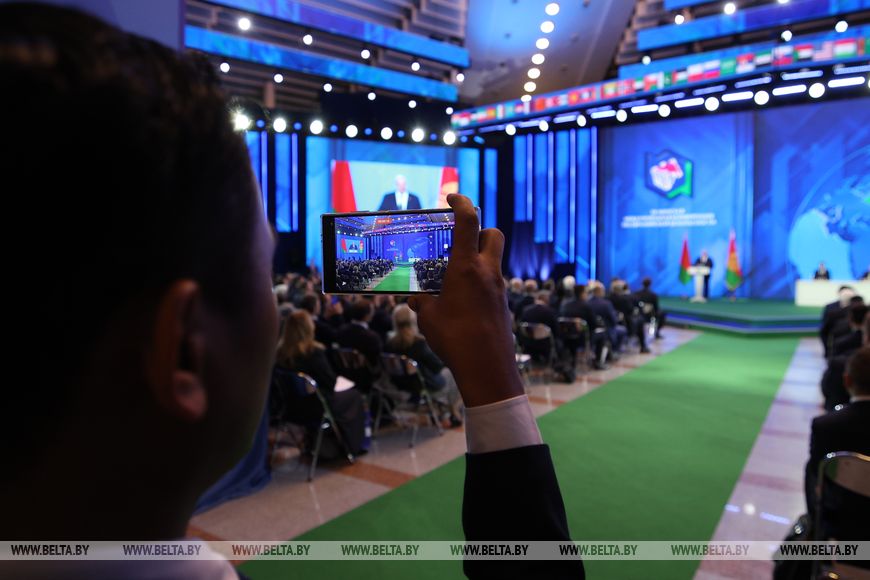
Overcoming the migration crisis is the third proposal voiced by the head of state. “The West must deal itself with the consequences of what it has done in the countries of origin. As for the consequences, we are eager to work in the format that ensured control over the situation for both sides for a long time,” the President said.
“It is necessary to negotiate, for example, within the framework of a global deal. We can discuss President Trump’s ‘all for all’ approach with both the USA and with Europe (like any other country),” Aleksandr Lukashenko added.
He stated that a unified system for screening migrants is obviously necessary, as well as enhancing efforts to combat human trafficking criminal networks, and expediting deportation procedures for violators.
As a fourth initiative, the president outlined the need to take measures in artificial intelligence. “An unregulated race in this area is turning it from a useful resource into a weapon. A weapon of mass destruction in the future,” the head of state warned.
In this regard, he recalled Belarus’ proposal to neighboring countries to create a belt of digital good-neighborliness. “It is time to bring together the whole Eurasia in this belt. And to enshrine the principles of digital sovereignty and neutrality in our future Charter of Multipolarity and Diversity in the 21st century,” the president believes.
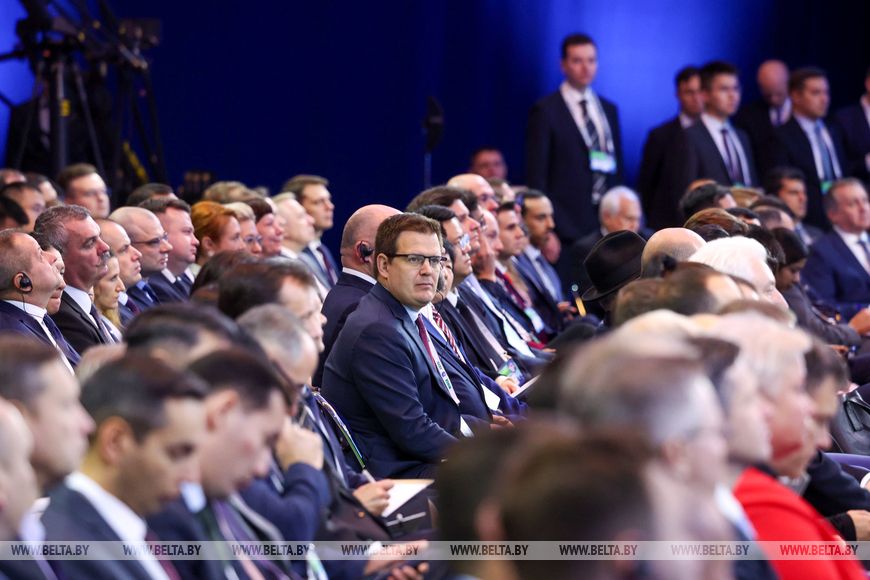
In conclusion, Aleksandr Lukashenko once again thanked all the participants for attending the event in Minsk despite existing challenges and wished them productive work and new ideas that are so needed right now.
Lukashenko describes Lithuania’s border closure as crazy gamble
Aleksandr Lukashenko said: “We, the participants were not the only ones looking forward to the conference. Our opponents, who keep an eye on Minsk today, were, too. Not everyone was supposed to get to Minsk today. It is the goal some of our neighbors intended to accomplish by launching this crazy gamble of closing the border. And they have come up with an absurd reason: air balloons. Even for a small country Lithuania is it is petty.”
“I declare responsibly that we are not talking about any extraordinary smuggling. But it speaks volumes about the political potential of our conference,” the head of state added.
Lukashenko mentions inadequacy of Munich Security Conference as platform
Aleksandr Lukashenko noted that the Minsk conference becomes increasingly popular every year and has already earned a place on the calendar of international events. For instance, as many as 48 countries are taking part in it this year, up from 38 in 2024.
“Why? Where else can one openly and honestly discuss fundamental matters of security on our common continent? In Munich? Maybe. But people over there want to see and hear only those, who have passed an ‘ideological sieve’. If they had their way, they would not let even Americans participate. Unless those once again speak the truth about the ‘European orchard’: about lost values, parasitism, hypocrisy, censorship, and double standards,” the head of state said.
Lukashenko: Western politicians are guiding their nations toward self-isolation
“Western politicians remain convinced they can force the world to serve their interests, isolating those who refuse to cave in,” he asserted. “Yet they fail to grasp today’s reality. Their policy of illegal sanctions and new dividing lines, be it ideological barriers, closed borders, or closed skies, is a direct path to global self-isolation.”
He added that the world has moved forward, prioritizing conflict-free coexistence, tolerance, and respect for differences. In this new world, the Global Majority has emerged as a full and equal participant.
Lukashenko: Ignoring indivisible security principle is a fatal mistake
“The main reason for the lack of progress in global de-escalation is the consistent disregard for the principle of the indivisibility of security. As a result, international relations today are described not in terms of trust and cooperation, but by citing data on kilometers of new barriers and megatons of lethal weapons. Behind this dangerous arithmetic lies the fate of not just individuals, but of all humanity!” the head of state said.
Lukashenko: ‘Spontaneous’ Gen Z revolutions become emerging security challenge
“In recent times, we have managed to reach settlements, hopefully long-term ones, on several protracted conflicts: Azerbaijan and Armenia have signed a peace agreement, and the two-year war in Gaza has come to a halt,” the president noted. “But there are no glimmers of hope in other hotspots.”
Aleksandr Lukashenko recalled an example he cited at the previous conference that there are currently around 50 armed conflicts of varying intensity worldwide, which is the highest number since the end of World War II. “Hostilities are intensifying, the number of casualties and refugees is growing, and economic losses are mounting. There is a separate challenge posed by the so-called spontaneous revolutions of Generation Z (Bangladesh, Nepal, Madagascar),” the Belarusian leader stated.
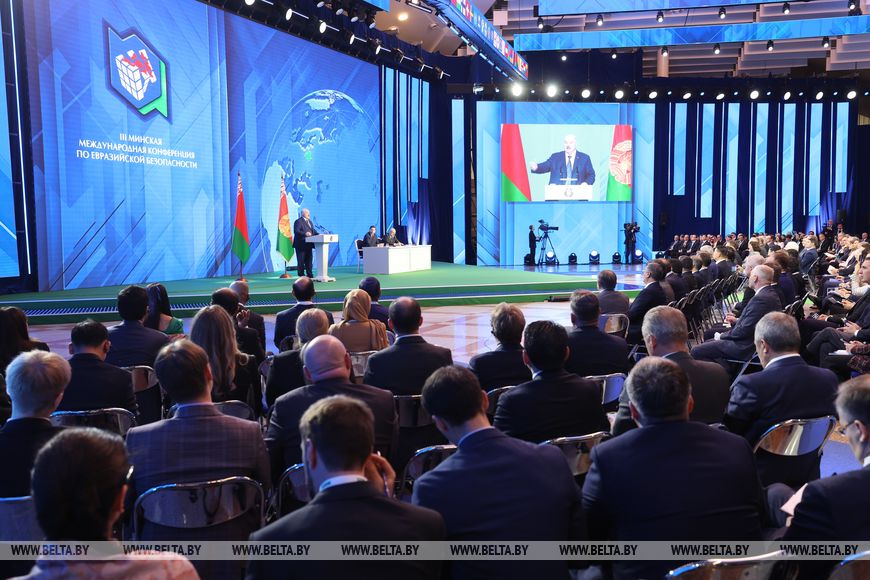
Lukashenko: West has now turned to theft
“First it was sanctions. Now they've stooped to theft. I am talking about the gold and foreign exchange reserves of Russia and Belarus. They've reached the point when they are shamelessly seizing these funds and, as if it were their own, and use it wherever they see fit,” the president remarked.
He believes that the response to this should include the creation of an alternative currency.
Lukashenko: No grounds for optimism on Eurasian security yet
“We really want to be optimistic about the future of European and, more broadly, Eurasian security. But the actual processes and phenomena that we are observing do not yet provide serious grounds for that. Rather the opposite,” the head of state said. “We have repeatedly warned: it is impossible to divide the common space of trust without consequences. Now we are facing the consequences of such short-sighted policies.”
Union State security guarantees treaty, nuclear weapons are ‘purely defensive step’
"The treaty on security guarantees within the framework of the Union State of Belarus and Russia signed last year provides for the use of all types of weapons, including nuclear ones. For defense! I reiterate: this step is purely defensive in nature and has been taken in strict compliance with international law and the Treaty on the Non-Proliferation of Nuclear Weapons,” the Belarusian leader stated.
Lukashenko: Belarus, Russia have no aggressive intentions toward Europe
“We are not claiming anything; we don’t need European capitals, be it Paris or London. We don’t even need Lithuania and Poland with their capitals, Vilnius and Warsaw. We don’t need this escalation.”
Lukashenko explains reasons behind deployment of Oreshnik missiles in Belarus
The Belarusian leader said: “The deployment of this weapon in Belarus is nothing but a measure in response to the escalation of the situation in the region and to modern threats. Please, let’s step away from it and talks about Oreshnik will stop. But they don’t want to. We don’t threaten anyone. We only take care of our own security. Moreover, we are always open to a constructive dialogue and mutual steps to reduce tensions. If our partners in the West are ready for it, then neither we nor Russia will remain in your debt!”
Lukashenko: It seems Europe does not seek peace
“At present, it seems that Europe does not seek peace. Politicians have forgotten the horrors of World War II. They have come to believe that building up military potential will make them safer. No, and no again! This is a road to nowhere, another step up the ladder of escalation,” the Belarusian leader stressed.
Lukashenko rejects accusations of Belarus using migration as weapon
“Adhering to its customary double standards, the West is attempting to falsely accuse Belarus of using migration as a weapon. Let me be perfectly clear: we do not use migration processes in any way and have no intention of doing so,” the head of state said.
He urged to call a spade a spade, stressing that migration is primarily a consequence of crises, destroyed economies, broken social ties and ruined state institutions in Africa, the Middle East, and a number of other countries as a result of the irresponsible policy of the collective West.
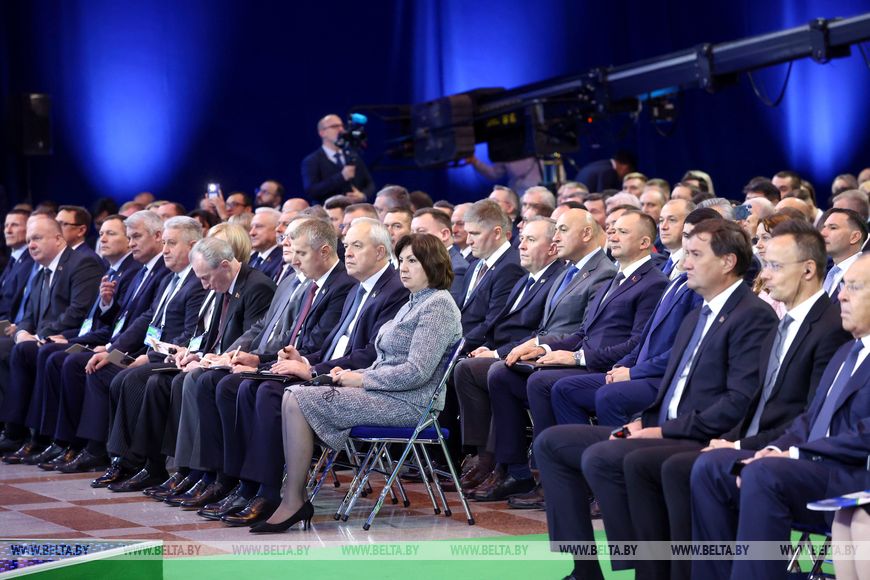
“When you destabilize and bomb other countries, pump out their resources and jeopardize their future, what do you expect? That people will stay in the ruins of their homes? No, they will go where they hope to find at least relative safety for themselves and their children. And tell these unfortunate people that they have no right to do so,” the president said.
Lukashenko affirms readiness to counter attempts to subjugate Minsk to foreign will
The head of state emphasized that security cannot be built on threats and ultimatums. “This is a dead end. With-out trust, cooperation, and justice, any security system is an inherently fragile construct,” he stated.
For Belarus, security is a paramount concern, as the country is not merely an observer but a direct participant in the geopolitical processes at the very heart of Europe.
“We are not naive,” the Belarusian leader stated. “We understand that the attempts to establish overwhelming military superiority on our borders, undermine our econ-omy, and provoke social unrest are all methods to force Minsk to submit to another’s will. We will respond with all means at our disposal. We have our own capabilities, the support of fraternal Russia, and the backing of the Global Majority.”
Lukashenko: Belarus does not see itself responsible for deteriorating relations with the West
“We have our own mentality, culture, and historical stage of social development. We do not accept any form of ideological or other aggression. Tense external conditions have been created by you, and subversive activities are taking place. You have bought off a dozen or two members of our self-exiled opposition and are portraying them as if they are the legitimate authorities in Belarus and Russia. And then you shout: ‘Putin and Lukashenko are co-aggressors.’ We will endure this,” Aleksandr Lukashenko said.
“We do not consider ourselves guilty of the deterioration of relations with the West and with certain individual countries. But we are willing to extend our hand. This is not a hand of a supplicant. It is the hand of a partner who respects itself and proposes to work together, sincerely, for the peace of our children and grandchildren,” Aleksandr Lukashenko emphasized.
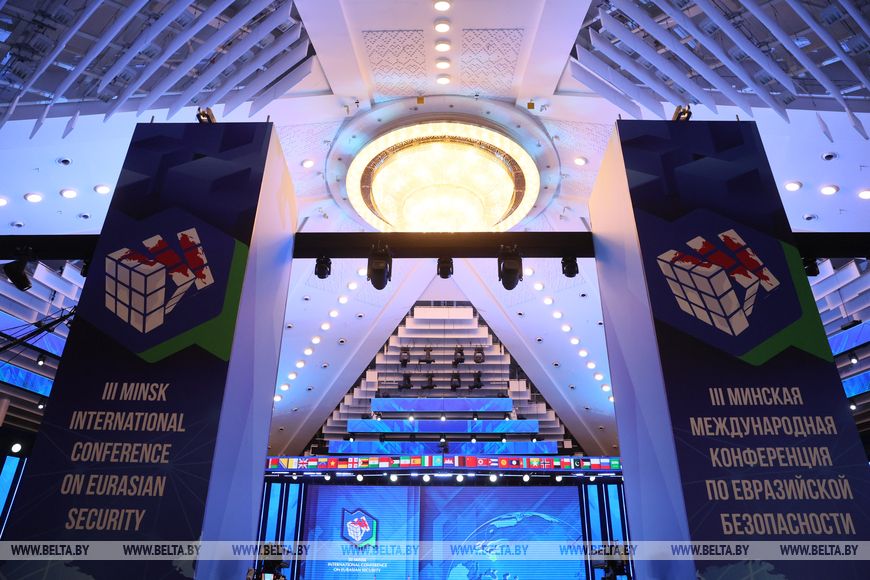
Lukashenko urges global deal to solve migration crisis
During his address, the head of state brought up the topic of overcoming the migration crisis, emphasizing the necessity for all parties to keep control of the situation.
“We need to negotiate, for example, within the framework of a global deal. We are ready to discuss President Trump's ‘all for all’ approach with both the USA and Europe,” Aleksandr Lukashenko added.
He stated that a unified migrant screening system is needed, alongside a strengthened fight against human trafficking cartels and faster deportation of offenders.
Lukashenko: U.S. peace efforts in Ukraine may be a ploy to mislead Russia
"I very much fear that the U.S. position on the Ukrainian conflict is theatrics to mislead Russia. Recent data increasingly suggests this. I wish it weren't so. I would prefer that we end this war properly. There can be no games here. Because, as Trump says, many people are dying. But these are just words,” the president said.
Lukashenko urges global deal to solve migration crisis
Concluding his speech, the president thanked participants for gathering in Minsk despite everything, wishing them productive work and the sound ideas so desperately needed. “But even more important than ideas is action,” he emphasized. “We simply cannot allow our conversations to become empty words. Action must follow. Today, we must be focused on this.”
Aleksandr Lukashenko warned that while nations claim they will not get involved in the arms race, their actions prove otherwise. “Seeing the world today, countries will spend their last resources to ensure their security,” he noted. “And if they cannot defeat a potential aggressor, they will seek to inflict unacceptable damage, a strategy Belarus adheres to.”
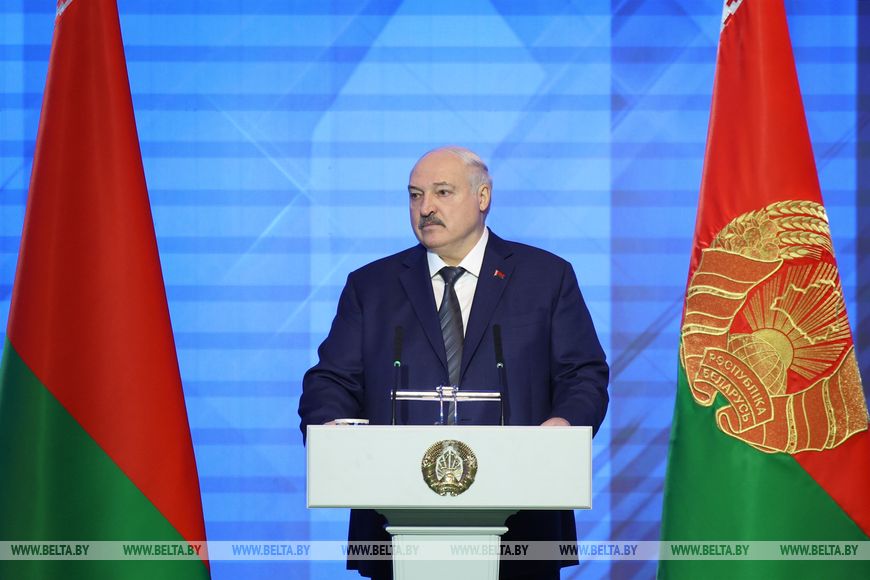
The Belarusian leader stressed: “We need dialogue. We cannot look at each other through the sights of a gun. Absolutely not. We must always talk. When we don’t talk, war is closer.”
Lukashenko criticizes actions of ‘civilized world’
Aleksandr Lukashenko said: “The so-called civilized world has reached its sunset. That’s for sure. Actions of not only our neighbors but Europe and other forces as a whole (there is no need to delude ourselves about the USA) represent an element of hybrid warfare just like the recent border closure by Warsaw. This is the 21st century for you: closed skies, razor wire, complete rejection of dissenting views. And it is only the beginning.”
Speaking about what it has produced, the head of state noted that, for instance, merchandise shipments from China to the European Union have been affected. However, the People’s Republic of China and Russia have found other ways, including shipments via the Northern Sea Route. “Huge losses have been incurred as a result. Not only in Belarus (we earned something due to transit) but also in Poland. The country earned as much as 65-70% from this Chinese transit. The rest is merchandise shipping via Kazakhstan, Russia, and via Belarus. Our countries accounted for 30-35%. Who has lost money because of that? It is clear who. They are now trying to find a way out. It is unlikely they will succeed. You know what China is and you know their approaches in this regard,” the president revealed the details.
